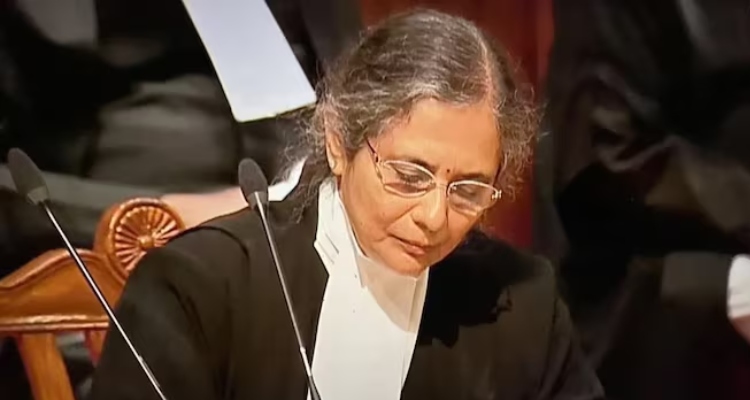
In a dissenting opinion, Supreme Court Justice Bela M. Trivedi on Thursday stated that states cannot create sub-classifications within Scheduled Castes (SCs) to grant quotas to socially and economically more backward castes within the group.
Justice Trivedi emphasized that states do not have the authority to alter the Presidential List or modify Article 341 of the Constitution under the guise of providing reservations to SCs or STs.
The seven-judge Constitution bench, led by Chief Justice D.Y. Chandrachud, ruled by a 6:1 majority that states can sub-classify SCs and Scheduled Tribes (STs) to allocate quotas to the more underprivileged castes within these groups. This majority verdict overruled the earlier judgment by a five-judge bench in the E.V. Chinnaiah vs. State of Andhra Pradesh case, which had held that SCs and STs are homogeneous groups and should not be further sub-classified for quota purposes.
Justice Trivedi disagreed with the majority verdict, asserting that the law settled in the E.V. Chinnaiah case should not have been reconsidered. She pointed out that Articles 341 and 342 empower the President to compile a list of SCs and STs, and any inclusion or exclusion from this list can only be done by Parliament through legislation.
Justice Trivedi wrote, “The Presidential List specifying ‘Scheduled Castes’ under Article 341 assumes finality upon notification, and only Parliament can amend this list. States cannot enact laws to provide reservations by dividing or sub-classifying the castes, races, or tribes listed as ‘Scheduled Castes’.”
She argued that even though SC members come from different castes, races, or tribes, they attain special status as ‘Scheduled Castes’ through the Presidential Notification. Thus, the states lack the legislative competence to further sub-classify these groups for preferential treatment.
Justice Trivedi also noted that the Supreme Court’s power under Article 142 cannot be used to override the substantive law applicable to a case or to create new legal provisions indirectly. She wrote, “Even with its broad scope, Article 142 cannot be used to construct a new legal framework that ignores existing statutory provisions, nor can it validate state actions that violate specific constitutional provisions.”
In conclusion, Justice Trivedi highlighted that affirmative actions by states must adhere to the constitutional framework and cannot be validated by the courts if they exceed this framework. “Affirmative action and legal frameworks aim for an equitable society, but they must navigate complex legal principles to ensure fairness and constitutionality,” she stated.




